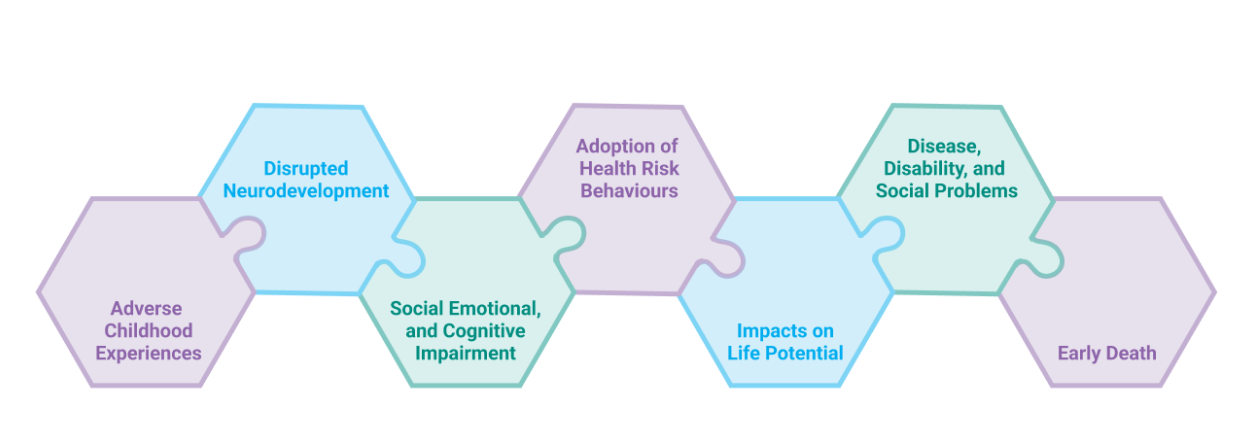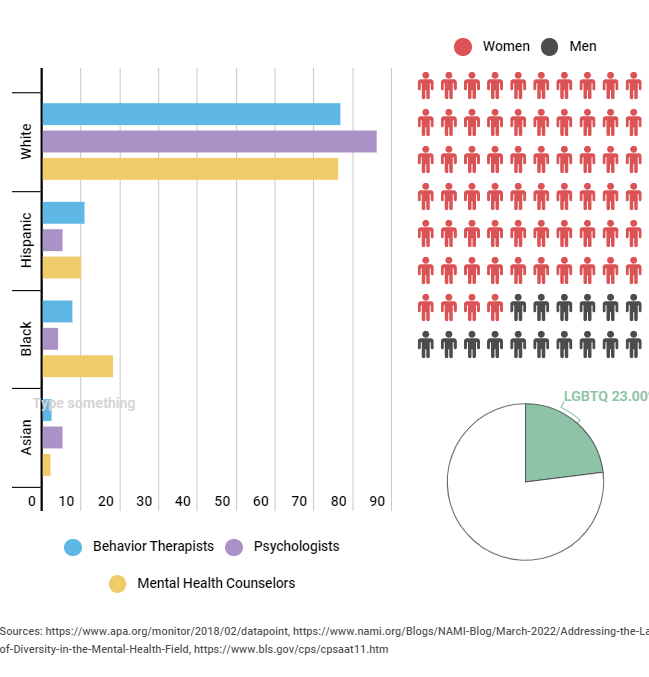Communities
How are different 👪communities’ emotional needs different? Our health is influenced by five main factors: genetics, behavior, environmental and physical influences, healthcare, and social factors. Issues relating to equity—race, education level, 💲income, etc.) contribute to SES (social determinants of health). Childhood enrichment and parents’ involvement boosts education, education 📚 determines career, and career influences 🏡 what resources a person has at their disposal.

Disparities In Behavioral Healthcare And Education

Workforce Diversity
In the US, more than 80% of behavioral health providers are white. Rebuilding trust in health care remains an issue, particularly among racially and unethically diverse populations.
Special Education
Behavioral and social challenges, trauma symptoms, language barriers lead to a disproportionately high percentage of students of color placed special education settings.

Access and Awareness
People with low income, Pacific Islanders, and BIPOC are more likely to experience barriers to receiving treatment. Poor parental and family mental health is also more common in marginalized communities.
Social emotional education results in + 11% increase in academic performance
Generational Trauma
Attaining equity means elevating marginalized people by preventing traumatic childhood experiences, helping families break harmful cycles, and endowing them with the knowledge, tools, and resilience to cope with stressors in healthy ways.
LGBTQ
individuals are more than twice as likely as heterosexual men and women to have a mental health disorder in their lifetime.

We Cannot Do This Alone.
Give Now To Give All Families a Safety Net of Behavioral Health Support
Career, Absenteeism & Productivity
▲ 6X
Black students are 6x more likely to be on student loans compared to whites
1/3 white Americans hold at least a bachelor’s, compared with blacks (19%) and Hispanics (16%)
over 50%
of kids with emotional, behavioral and mental health disorders drop out of school.
Higher Education Matters!
High school drop outs are
800% ▲
more likely to be incarcerated.
whole-person
whole-family
wellness
24/7 support for the whole family that you control | 100% private and evidence-based | multiple types of therapies and coaching in one
